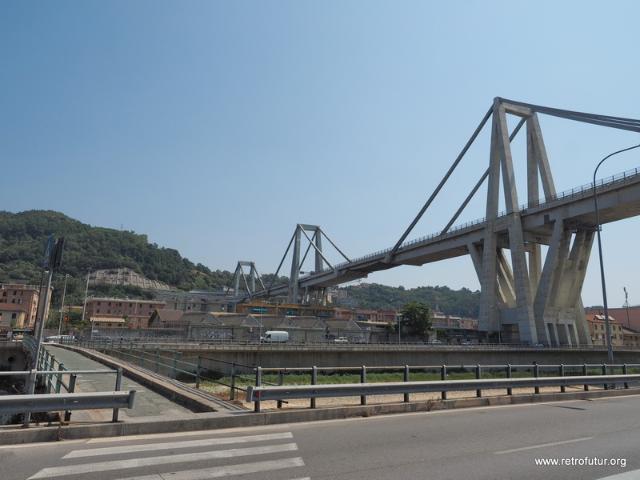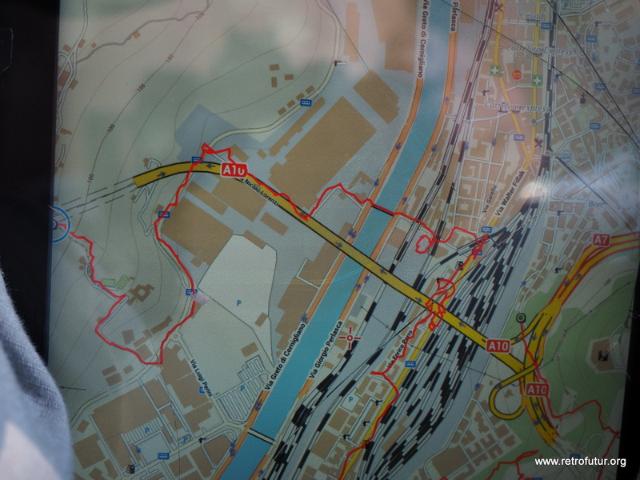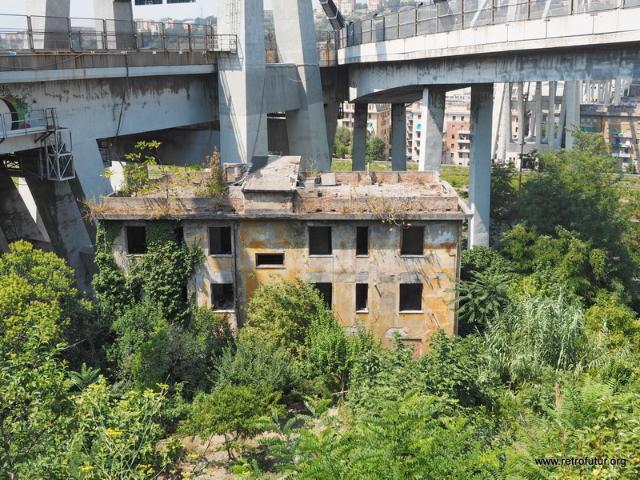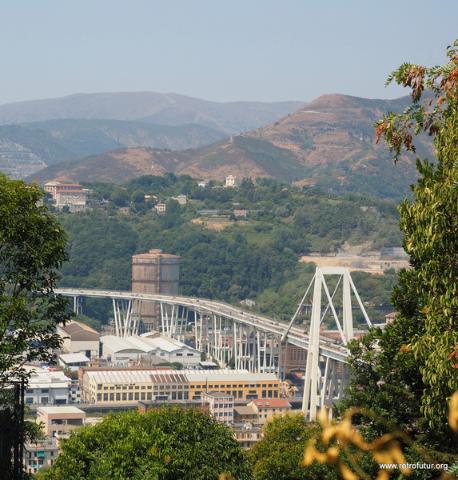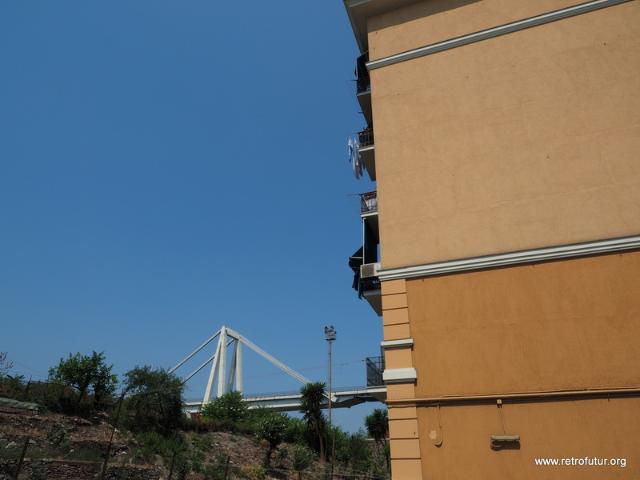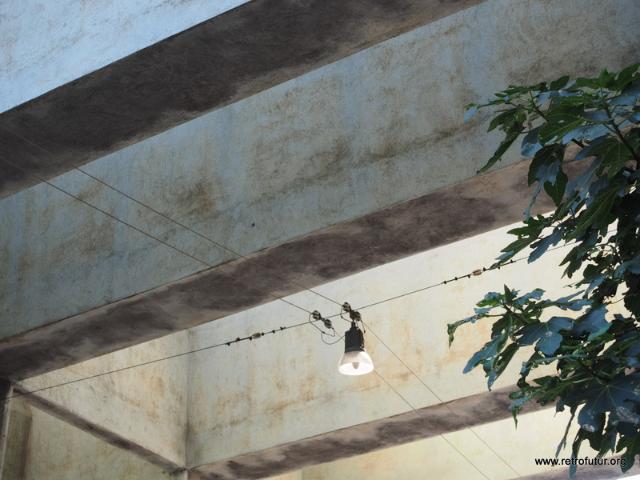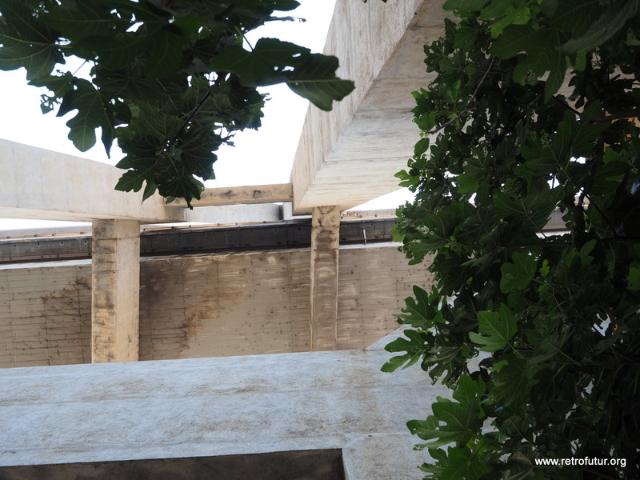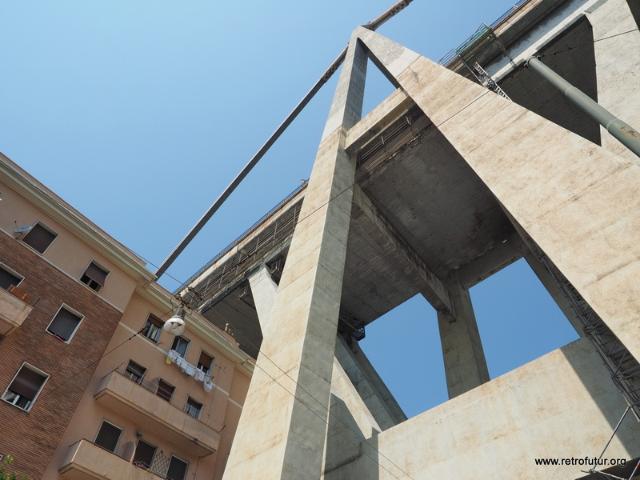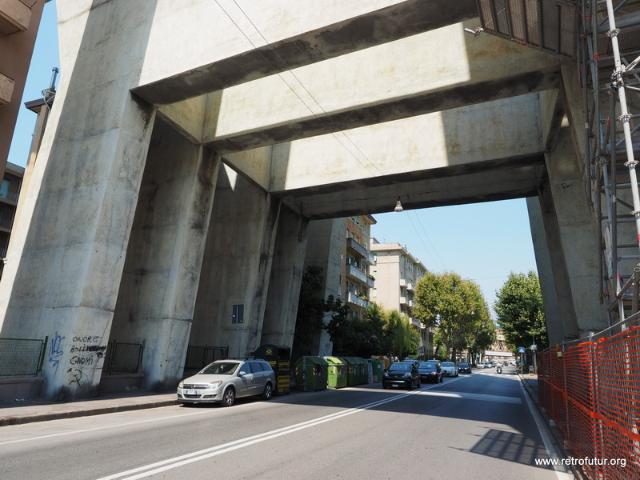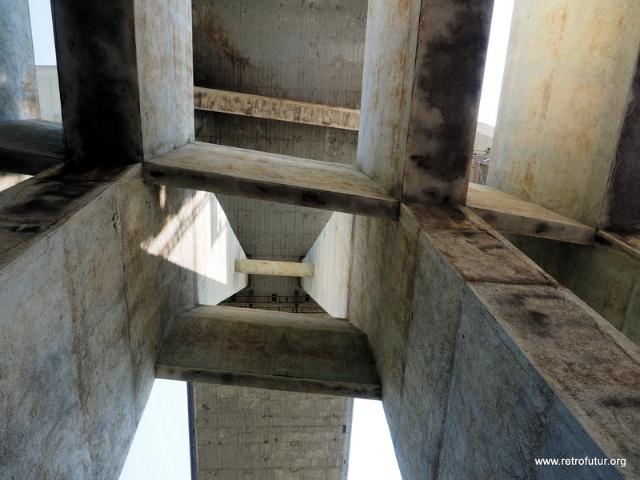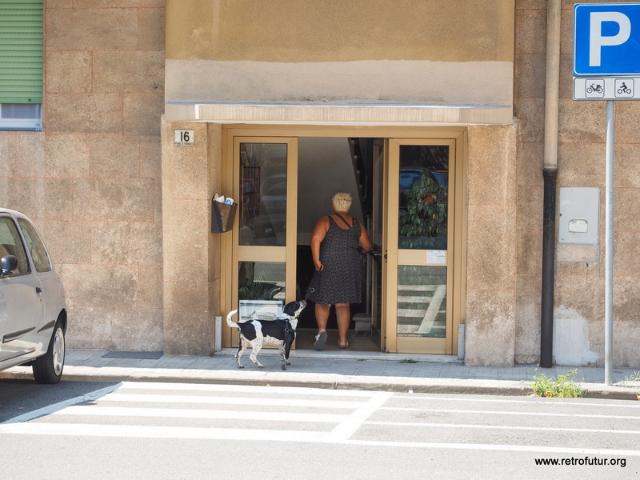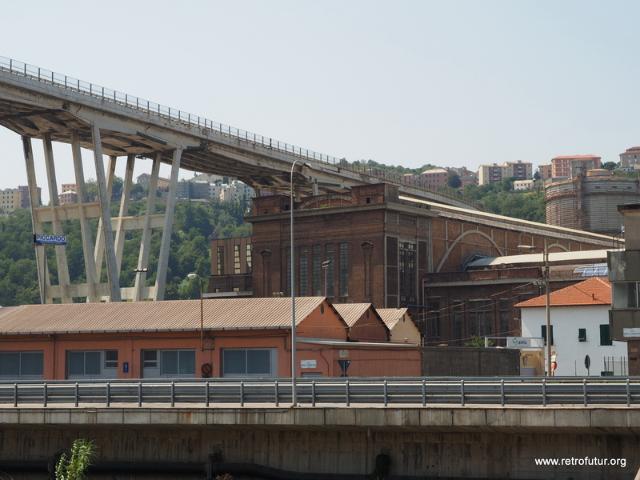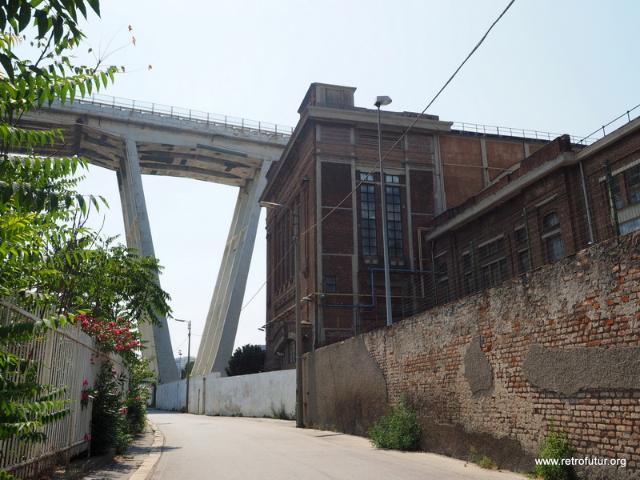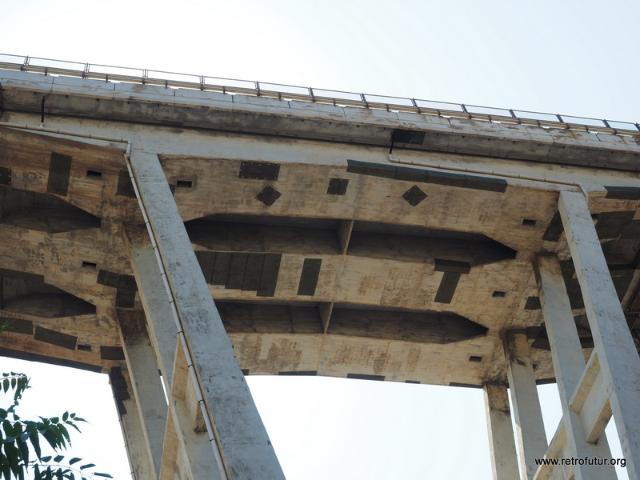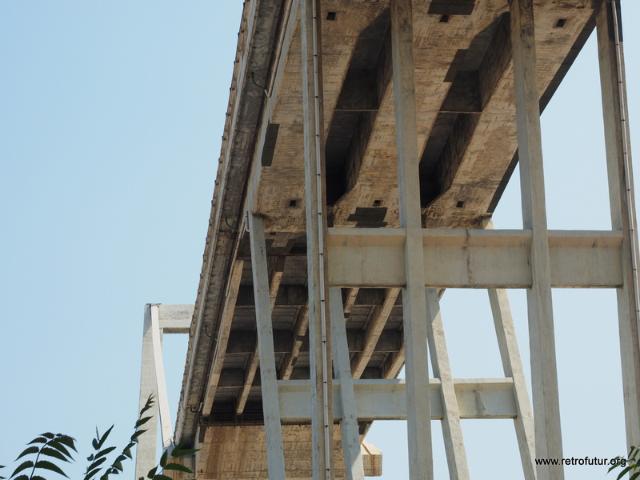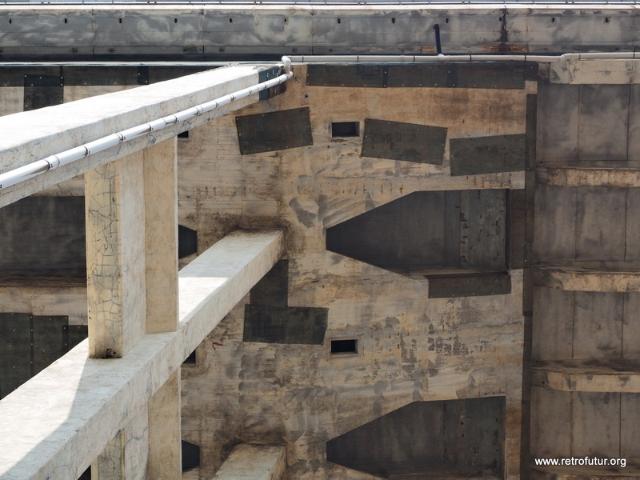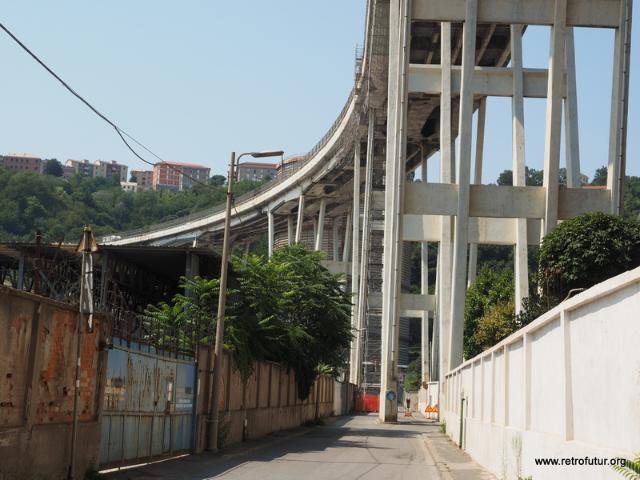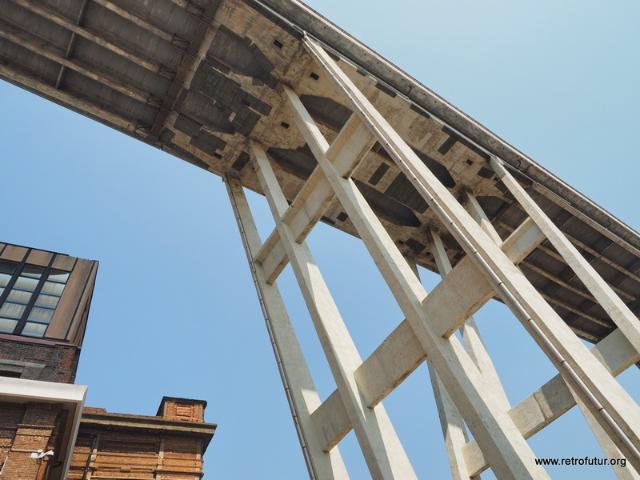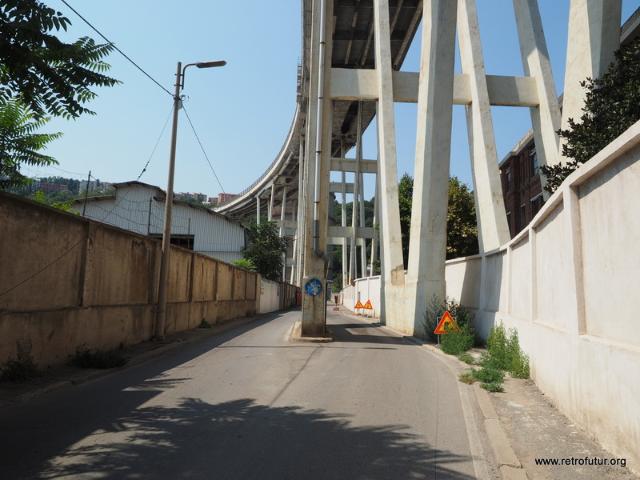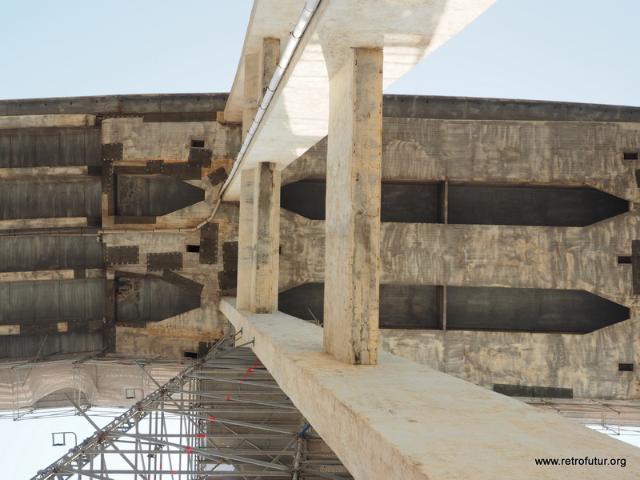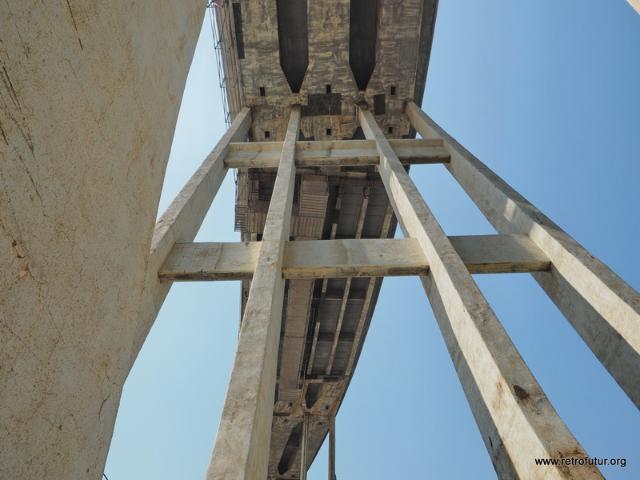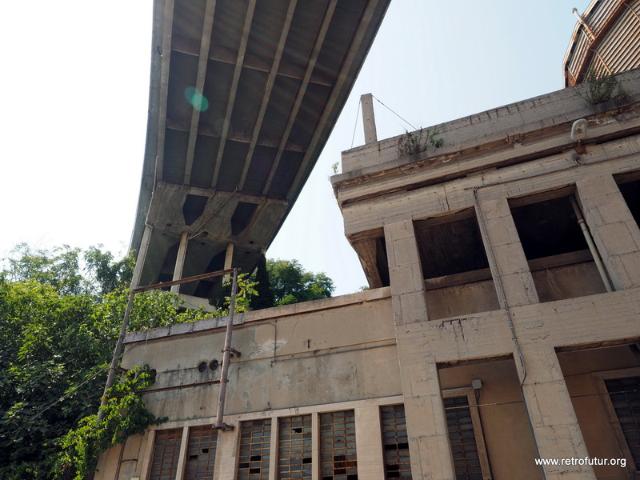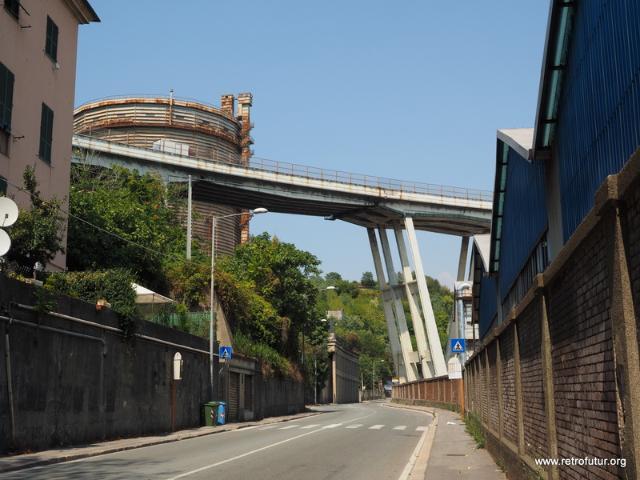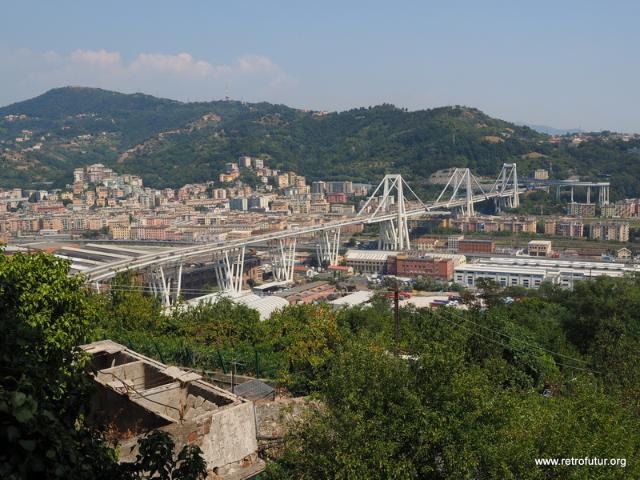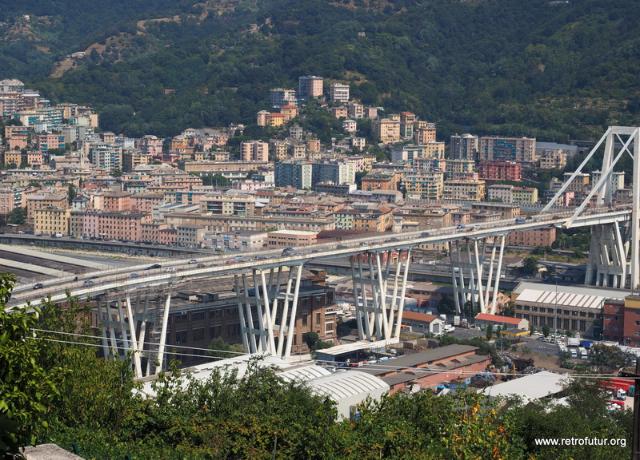| <prev< Understanding Morandi - The Post-Stressed Conrete Cable Stays |
| >next> Album year 2007, including historic postcards |
 | Foto Documentation August 2015
|
Foto documentation: August 14, 2018 *Update*
- I included a number of additional images dating August 8, 2015,
adding to those from 2007 further below this page.
- Information for media distribution:
The images below (800x600px) may be freely used in any way,
as long as the author "Kristian Hasenjäger" is mentioned
and the inscription "www.retrofutur.org" remains visible.
- I document and research the history of this bridge since 2007.
- For any inquiries, please feel free to email "skyhook@aon.at"
- For high quality hi-res images and video clips, please contact "skyhook@aon.at".
- Click on the gray square icon (next to the orange title right above) to view all images on a single page.
Peculiarities of the Polcevera bridge - quick overview:
- The peculiarity of this bridge (opened in 1967) may be seen in the configuration of the three 90m high A-type pylons, one of which collapsed on August 14, 2018.
- Each of the three A-type pylons supports a statically fixed bridge table section through four cable stays
- A set of steel cable stays is channelled inside the (visible) concrete beams. The cables were prestressed at construction time, so that the concrete beam around it remains always under a certain compression. This may be less prone to oscillations than a steel-only cable stay configuration, and reduce stress on the cables. However, because of its weight, extension and slim cross-section, the beams behave more like flexible catenaries than rigid beams.
- Since the 1980ies, the bridge has been continuously and thoroughly monitored.
- Preliminary checks had brought to light a worrisome situation, manifested by the presence of cavities and degradations in the concrete, especially at the fixation point of the prestressed cable stays
- Especially the section which passes over highly urbanized area has been strengthened 1993 and onwards (see dedicated photos below).
Overview: The Bridge spans over a highly urbanized suburb of Genova at a height of 45m. The leftmost of the three 90m high pylons (numbered 9, 10 and 11) collapsed on August 14, 2018.
|
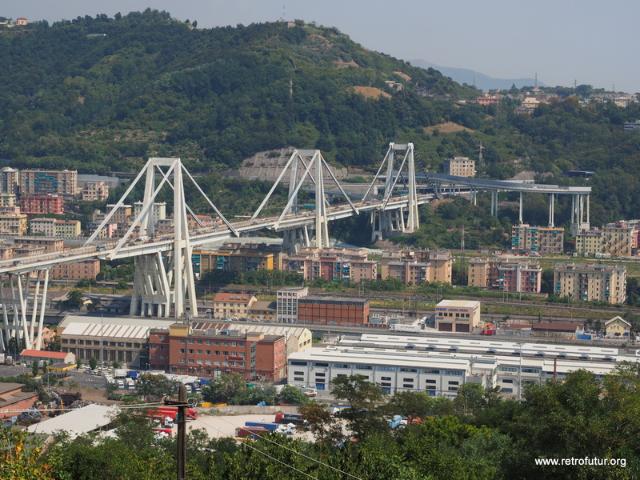
On August 14, 2018 the left tower 9 collapsed, while the right pylon 10 remained intact and saved the houses below it
|
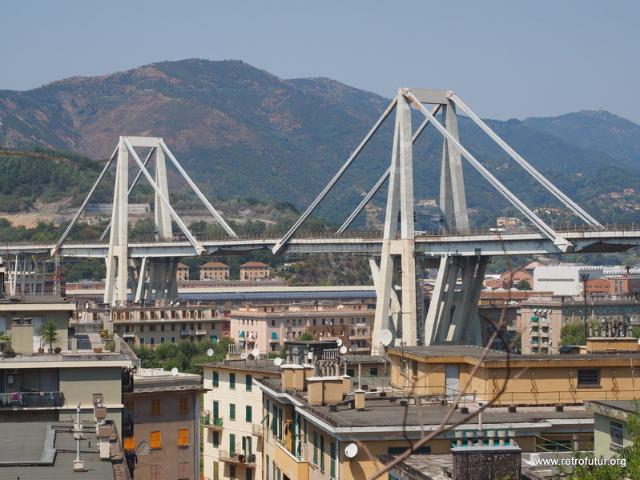
The particularity of the longer span tables is their static balance on "A"-shaped pylons and the extension tables in-between them held by thin prestressed concrete girders attached to 90m high towers
The four cable stays of the eastern pylon have been visibly reinforced in the past decades, after 1993. A set of external cables form a sheathing to strengthen the original cable stay
|
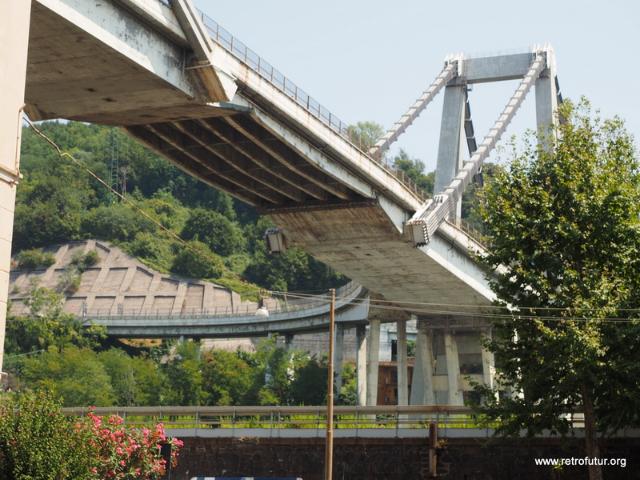
The Bridge spans over a highly urbanized suburb of Genova at a height of 45m. This section was not affected by the collapse.
|
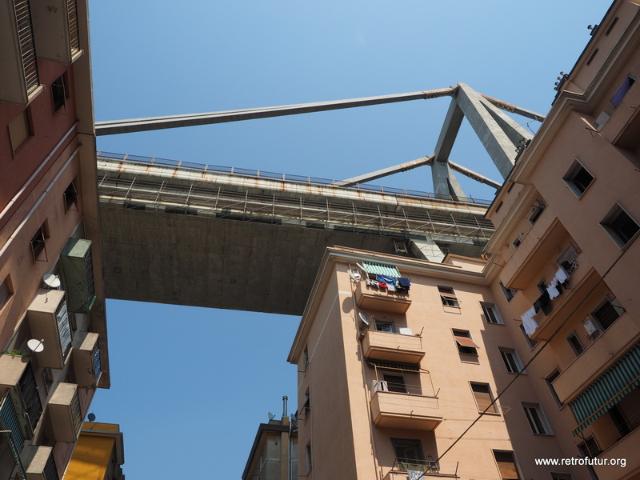
The Bridge spans over a highly urbanized suburb of Genova at a height of 45m. This section (between pylons 10 and 11) was not affected by the August 2018 collapse.
|
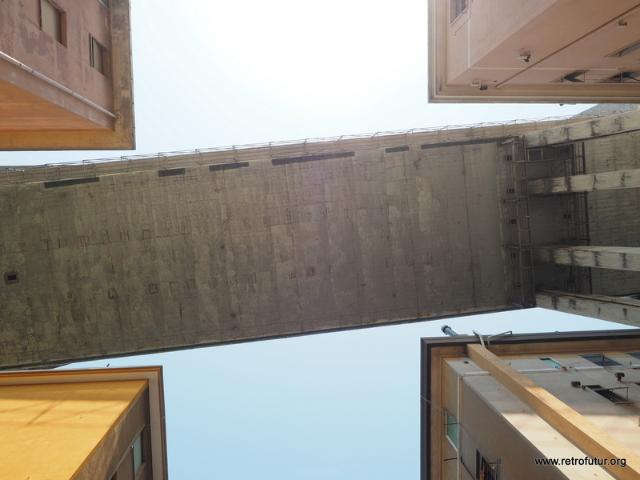
The Morandi Polcevera bridges passes right through the homes. This part however did not collapse on August 14, 2018
|
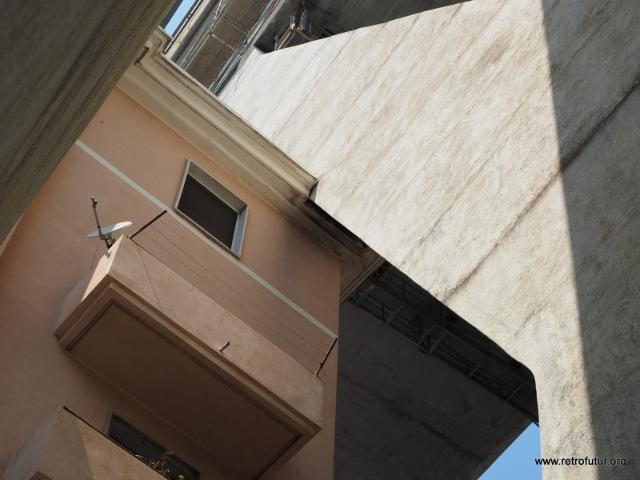
The Morandi Polcevera passes right through the homes. Pylon number 10 did not collapse on August 14, 2018
|
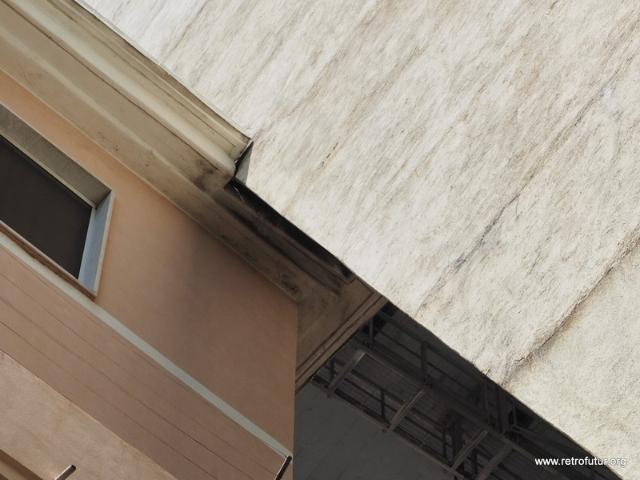
The Morandi Polcevera passes right through the homes. Pylon number 10 did not collapse on August 14, 2018
|
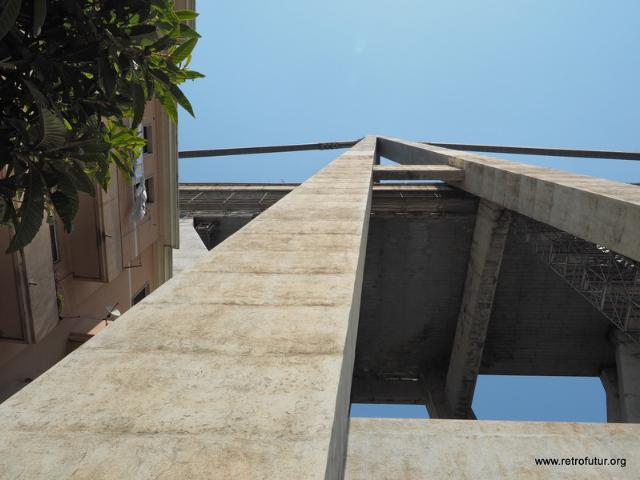
The Morandi Polcevera passes right through the homes. This part however did not collapse on August 14, 2018
|
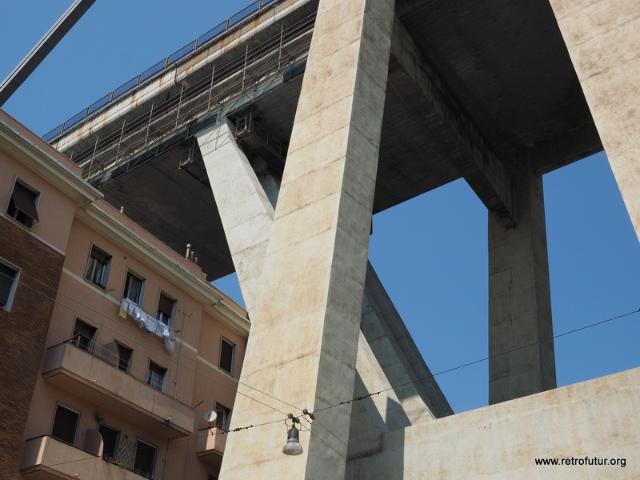
The Morandi Polcevera passes right through the homes. Pylon 10 however did not collapse on August 14, 2018
|
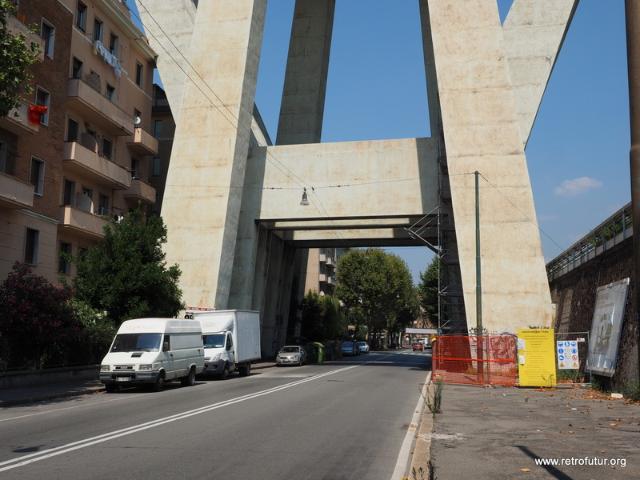
Reinforced pylon number 10. The visible steel sheathing has been added 1993 and later. This is the middle of the three 90m high pylons
|
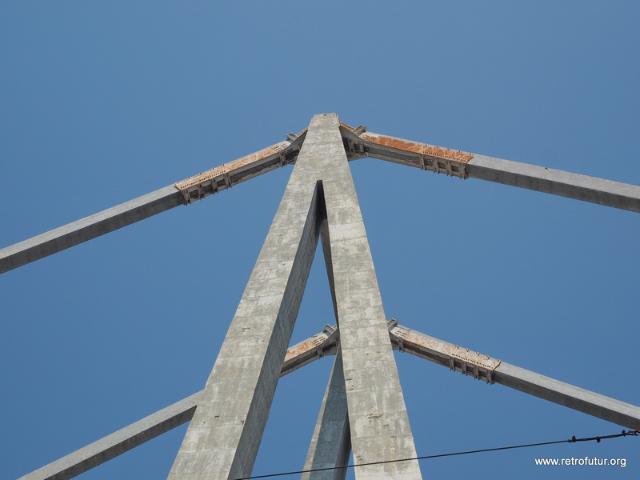
Detail view of reinforced pylon number 10. The steel sheathing has been added 1993 and later. Pylon 9 did not receive this upgrade.
|

The section of Morandi Polcevera bridge collapsed on August 14, 2018. The tower number 9 on the right disintegrated, while number 10 one on the left luckily still stands. Here it crosses a disused railway yard.
|
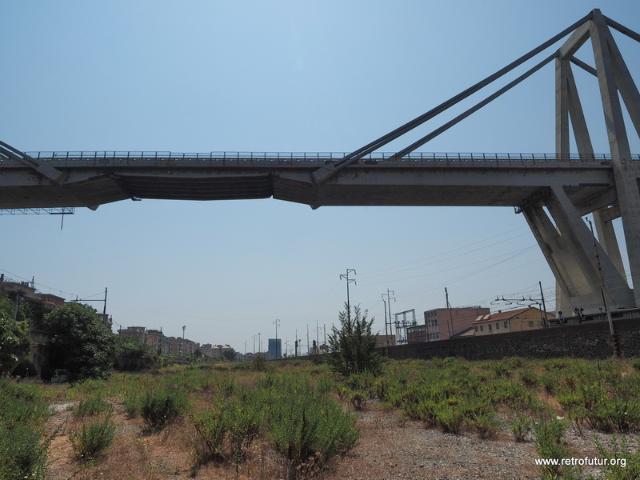
The section of Morandi Polcevera bridge which collapsed on August 14, 2018. Here it crosses a disused railway yard, but also the residential buildings on the left. The left tower (number 10) did not collapse, hence probably saving many lives in the build
|

The section of Morandi Polcevera bridge which collapsed on August 14, 2018. Here it crosses a disused railway yard, but also the residential buildings on the left.
August 2015
|

Photo taken from foot bridge over Polcevera river. All three A-Type pylons, numbered 9,10 and 11 from right to left are visible.
|
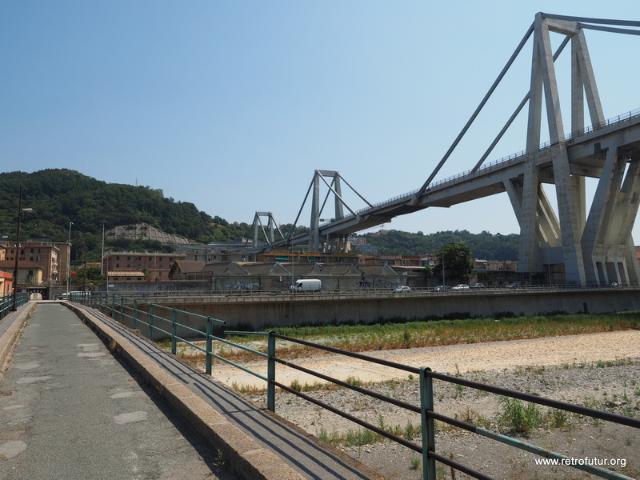
Polcevera river and Morandi Bridge. All three A-Type pylons, numbered 9,10 and 11 from right to left are visible. August 2015
|
